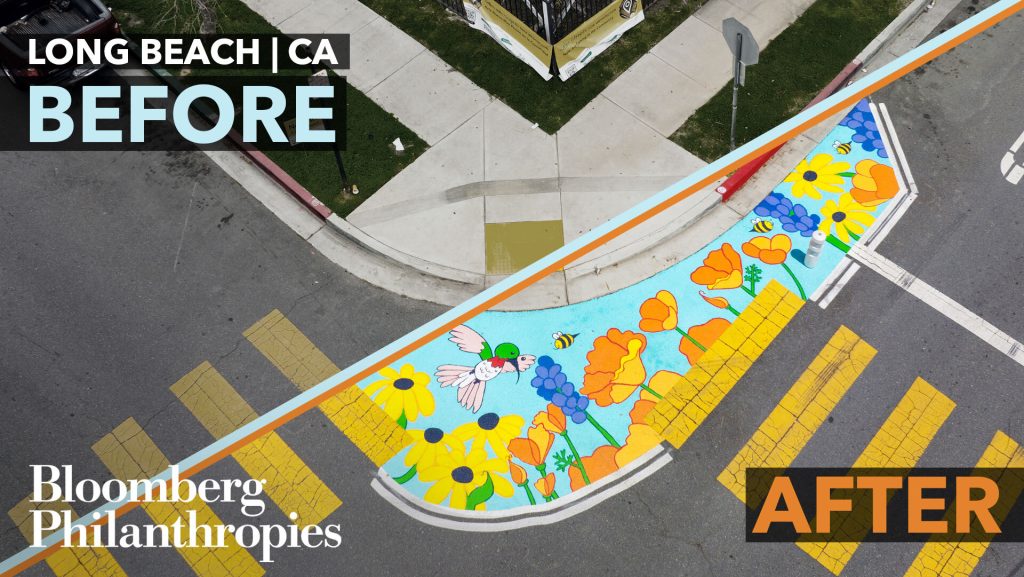Improving digital arts infrastructure, Mike on healthcare jobs and education, helping mayors innovate, petrochemicals in plastics
The Topline
Key data points
- By 2030, 100% of the baby boom generation will be over 65 years old, creating new demands on our already strained healthcare systems. In an op-ed, Mike writes about how we can help fill healthcare staffing gaps, and create job opportunities for skilled high school graduates.
- Bloomberg Philanthropies invests in 700 cities around the world to help them tackle big challenges and share creative solutions. At the recent Urban Tech Summit, James Anderson, who leads our Government Innovation program, had a wide-ranging conversation about helping mayors solve problems with data, innovation, and collaboration.
- Our Digital Accelerator Program has helped cultural organizations generate more than $20 million in new revenue and reach a million new audience members. We’re expanding the initiative to help more organizations strengthen their technology and management practices.
- In less than one minute, you can learn about the impacts of petrochemicals, the surprising places you might find them, and why we need to move beyond them.
Helping Cultural Organizations Use Technology to Reach Audiences and Generate Revenue
The pandemic made clear how technology can help cultural organizations connect with audiences, artists, and their communities — and how many organizations lack the digital infrastructure to seize those opportunities. In 2021, we launched the Digital Accelerator Program to help arts and culture organizations strengthen their technology and management practices. Over the last two years the program has supported more than 150 art galleries, theaters, and other nonprofits in the U.S. and U.K., and our first cohort of 40 organizations has added $20 million in new revenue, reached more than one million new audience members, and engaged with 4,000 new artists and partners. Now we’re expanding the program to up to 50 more organizations. Find out about the latest opportunity to join the Digital Accelerator Program and how it’s helping cultural organizations amplify their impact.
Mike’s Op-Ed: Empowering Students to Fulfill a Critical Need
The healthcare industry today has 2 million open roles and is expected to need 4 million workers by 2031 to care for America’s aging population. “A big part of the reason hospitals and other healthcare providers cannot fill these jobs,” writes Mike in a recent op-ed, “is that college graduates often look elsewhere for jobs, and high school graduates often are not prepared for them.” Earlier this month, Bloomberg Philanthropies launched a career and technical education initiative to train high school students in 10 urban and rural communities to enter healthcare jobs right after graduation, without requiring four years of college. In addition to helping close the talent gap in healthcare, the initiative is a model for other high-growth industries to find talent, and empowers high school graduates with opportunities beyond the “unappealing choice” that, Mike writes, they often face: “Go to college and take on debt, or face severely restricted career prospects.” Read Mike’s op-ed to learn more about this first-of-its-kind initiative
Follow the Data: Driving Urban Innovation
From climate to housing to emergency response, local governments are advancing local and global solutions that can save and improve lives. But to make real progress, it’s critical that cities have the capacity to solve problems in new ways — with robust data, innovative technology, and cross-sector collaboration. In our latest episode of the Follow the Data podcast, James Anderson, who leads our Government Innovation program, joins Nneka Sobers from the Urban Tech Hub at Cornell Tech to talk about implementing ambitious solutions with city halls around the world, and ensuring that great, proven ideas spread from city to city.
The Petrochemical Building Blocks of Plastics are a Major Threat
Petrochemicals are a key ingredient in plastics, which means they can be found in so many of the products we use — and throw away — every day. In the latest video from Beyond Petrochemicals, Melissa Aguayo of Break Free From Plastic explains, in under a minute, the many places where you might encounter petrochemical-based plastics, and the threats they can pose to our health and the environment.
Photo Spotlight

With the help of our Asphalt Art Initiative, this key intersection in Long Beach, California — near a nursery and a middle school — is now safer and more colorful for the people who use it every day.
See how the community came together to bring the project to life.